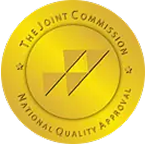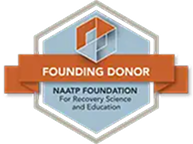Navigating the Stigma: How Professionals Can Overcome Barriers to Seeking Addiction Treatment

If you’re struggling to balance mental health or addiction recovery needs and a career, know that it’s okay to worry about speaking up. It’s okay to be concerned about your professional reputation. As much as attitudes about addiction are changing for the better, the stigma of addiction still exists. It can make stepping up, advocating for yourself, and getting the treatment and support you need difficult. It’s OK to worry, and it’s normal to have concerns. But it’s not OK to let this worry and stigma keep you trapped in addiction.
But then how do you navigate this stigma? How do you get treatment while trying to balance work, life, and a substance use or mental health issue? Because so much silence and stigmatizing language surround addiction and mental health, you may not be aware of the many compassionate, confidential resources available, or you may not know how to access them. Once you reach out, you’ll find more support and understanding than you ever expected. Fellowship Hall and other treatment programs are here for you. And even outside of residential or outpatient services, there’s a huge community of supportive treatment professionals, peers in recovery, and allies. Take a look at this guide on navigating the stigma, then reach out for help and support.
Navigating Addiction at Work
Addiction at work isn’t an isolated occurrence, and it shouldn’t be an isolating one either. The stigma creates images of jobless and homeless individuals, but this is hardly the truth. According to the Centers for Disease Control, “two-thirds of adults with substance use disorders (SUDs) have jobs,” while the National Safety Council reports that one out of 11, or 9%, of U.S. workers have a substance use disorder.
Using on the job, untreated mental health symptoms, or even being hungover or distracted by thoughts of using is dangerous. The U.S. Bureau of Labor Statistics shares that there are more overdose deaths at work every year. And this statistic just covers overdoses. The number of drug-related deaths and injuries resulting from accidents is even higher. So how do you keep yourself, your career, your coworkers, and any patients or clients safe? You overcome your personal and professional barriers to addiction treatment, and you get the help you need to find lasting recovery.
Barriers to Addiction Treatment
As mentioned above, if you’re a working professional, workplace stigma, or your fear of it, is going to be one of the biggest barriers to getting addiction recovery care. But in order to do your job, you need to be at your best. And while you may worry getting treatment will put your job at risk, not getting treatment is an even bigger hazard to your professional life. You’ll never perform your best when your mind is preoccupied with mental health symptoms, impaired by substances, or distracted by thoughts of using. If you remain limited by stigma — one which may exist primarily in your own head and not accurately reflect the attitudes of your workplace, supervisors, and coworkers — your career remains equally limited.
Speaking up and getting help is the best way to preserve your job and your reputation. For example, if you are a medical professional, the International Journal of Nursing Studies says that “addiction need not translate into the end of a health professional’s career,” and that health professionals can get evidence-based treatment that will allow them to continue to practice safely and have long, sustainable careers.
On the other hand, nothing about living with untreated addiction is sustainable, and the sooner you reach out for help, the better. This is true both for your own recovery success and for taking steps before consequences, or even more severe consequences, occur.
Making Time for Addiction Recovery Care
When it’s time to move forward in your life, talk with your workplace about using sick time or taking a leave of absence while you work on your health and on becoming a better professional. You may not have to share details about why you are taking this leave, and any details you do share should remain confidential. If you aren’t sure about the laws and regulations regarding recovery, privacy, and taking medical time off, experienced treatment providers like Fellowship Hall can advocate on your behalf for a leave of absence and insurance coverage.
If you really aren’t comfortable sharing your struggles with your employer, or if you know (and aren’t just assuming based on a lack of non-stigmatizing language for addiction around the workplace) that your job won’t be understanding, you still have options. For the best health and safety of all, know that you can always quit and come back later. Taking a break in your career before something bad (or worse) happens is a better option for your future than continuing a downward spiral. When you are healthier, you can rejoin the workforce. Through treatment and therapy, you may rediscover your passion for your career. Or you may reassess and choose a less stressful or triggering career path for your future. When you get treatment, you get options. When you continue drinking, using drugs, and ignoring mental health symptoms, the path ahead only gets narrower.
To ensure professionals get the most out of their time in residential treatment, they can opt to take part in our Professionals Program, a week-long intensive that focuses on overcoming stigma and finding recovery hope. Treatment is always private and confidential, so you can request time off from work without having to share personal details. And programs like ours can help you better understand your rights and options when it comes to being open about your recovery in the workplace. We can help you move forward with professional monitoring organizations and navigate your specific career and workplace’s regulatory boards so you can get back to work and do so faster.
Returning to Work
Addiction recovery is a balancing act. Your work creates risk factors (which we will highlight below), but working is also a recovery tool. According to the Substance Abuse and Mental Health Services Administration (SAMHSA), “work is one of the best predictors of positive outcomes for individuals with [substance use disorders]” and results in lower relapse rates and better quality of life. However, “returning to work” will look different for everyone. After time off, detox, and a treatment program, you may feel refreshed and ready to jump right back into your old job again. You may decide that a similar role, but with reduced hours or stress, is a healthier fit. Or you may find that an entirely different career path will better support your recovery journey. Taking time to get professional help and learn how to best care for yourself and your recovery sets you up for the greatest future success.
Workplace Risk Factors
The Centers for Disease Control shares that the workplace conditions that most commonly lead to substance use and relapse include, “extra work demands, personal conflict at work, [and] dangerous work.” If you are overworked, stressed, and burnt out, you are not working at your best, and you are working in a way that challenges your sobriety. If you are worried about your coworkers and their addiction and mental health stigmas, you aren’t speaking up and asking for support or accommodations when you need them.
Coworker attitudes may make you feel misunderstood or unwelcome, or like you are in a workplace without any person-centered language surrounding substance abuse – as if you are only your disease and not an individual with a disease. Treatment will teach you how to start productive, educational conversations with coworkers and how to navigate stigma without risking your recovery progress.
Additionally, treatment will help you learn your own personal relapse triggers. What specific work situations cause you the most stress? Is it public speaking, being on call, dealing with a specific client or scenario? Instead of pushing through and putting your recovery at risk, consider what you can do to delegate, change, or step back from these situations.
Overcoming Addiction and Mental Health Stigmas
Combating workplace risk factors and navigating the stigma begins with you. You can’t move forward until you take action. You need to reach out for help, whether from your workplace, at the behest of your professional monitoring organization, or privately on your own time.
You need to learn coping skills and self-care techniques. You need to know when you are pushing too hard, working too much, and burning out. But you don’t need to do these things alone. A Professionals Program like ours at Fellowship Hall will help you balance your personal and professional life. We will help you navigate workplace stressors and relapse factors and set healthy barriers. We can help you navigate personal relationships at home and create a supportive environment at work.
And once you are in a position to help yourself, you can give back by creating a healthier workplace for everyone. You can participate in addiction recovery and mental health advocacy. If you own your own business or are in a supervisory position, you can create workplace-supported recovery programs. You can offer information and education to help in reducing mental health stigma and increasing understanding of substance abuse and addiction. If you are an employee, ask if you can share pamphlets or posters, or if you feel up to it, if you can share your own story. The more we talk about recovery and ask for change, the more it becomes accessible to everyone.
"*" indicates required fields
CONNECT WITH US
Our Admissions Staff Is Here to Help
Not sure if you or someone you love needs help? Call our Admissions Staff who can help you assess the next step at 336-553-6596."*" indicates required fields






